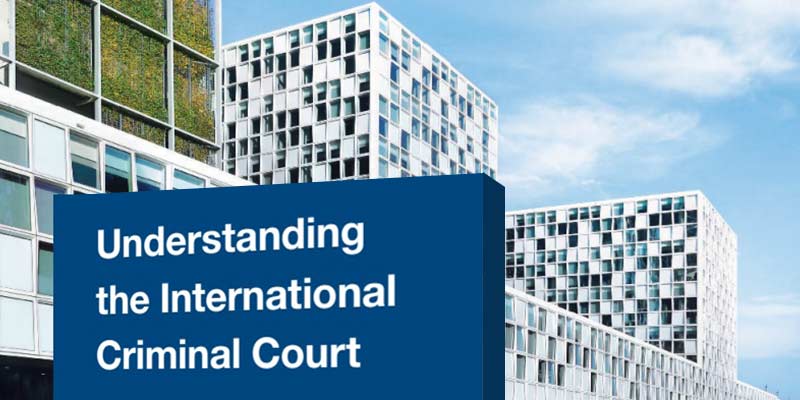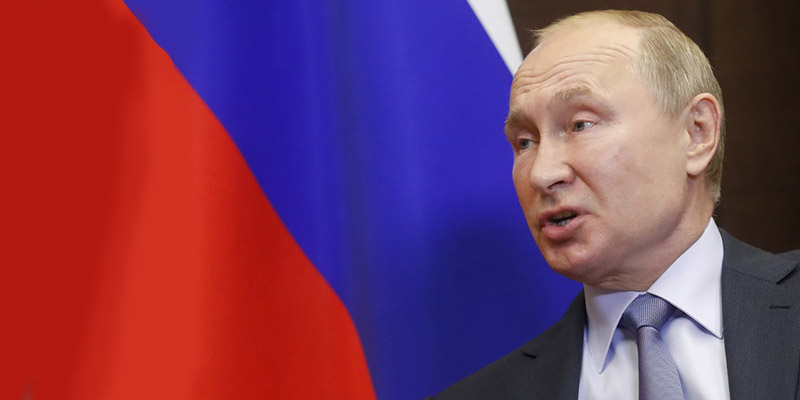- World
- Mar 18
International Criminal Court issues warrant for Putin’s arrest
• The International Criminal Court (ICC) has issued an arrest warrant for Russian President Vladimir Putin for war crimes, accusing him of personal responsibility for the abductions of children from Ukraine.
• It was the first time the global court has issued a warrant against a leader of one of the five permanent members of the UN Security Council.
• The court also issued a warrant for the arrest of Maria Lvova-Belova, the commissioner for Children’s Rights in the Office of the President of the Russian Federation.
• The move was immediately dismissed by Moscow and welcomed by Ukraine as a major breakthrough.
International Criminal Court (ICC)
• The International Criminal Court (ICC) is an independent judicial body with jurisdiction over persons charged with genocide, crimes against humanity and war crimes.
• Situated in The Hague, Netherlands, the ICC is governed by the Rome Statute adopted by the UN in 1998. It entered into force in 2002 upon ratification by 60 States.
• In addition, the Rome Statute also sets new standards for victims’ representation in the courtroom, and ensures fair trials and the rights of the defence. The court seeks global cooperation to protect all people from the crimes codified in the Rome Statute.
• Currently, 123 countries are state parties to the Rome Statute of the ICC.
• India has not signed the Rome Statute as it is not a member of the ICC.
The court’s founding treaty, called the Rome Statute, grants the ICC jurisdiction over four main crimes.
i) Crime of genocide: It is characterised by the specific intent to destroy in whole or in part a national, ethnic, racial or religious group by killing its members or by other means: causing serious bodily or mental harm to members of the group.
ii) Crimes against humanity: Serious violations committed as part of a large-scale attack against any civilian population. The 15 forms of crimes against humanity listed in the Rome Statute include offences such as murder, rape, imprisonment, enforced disappearances, enslavement - particularly of women and children — sexual slavery, torture, apartheid and deportation.
iii) War crimes: They are grave breaches of the Geneva conventions in the context of armed conflict and include, for instance, the use of child soldiers, the killing or torture of persons such as civilians or prisoners of war, intentionally directing attacks against hospitals, historic monuments, or buildings dedicated to religion, education, art, science or charitable purposes.
iv) The crime of aggression: It is the use of armed force by a state against the sovereignty, integrity or independence of another state.
Functioning of the ICC
• The ICC is composed of 18 judges, who are elected for terms of office of nine years by the Assembly of States Parties to the Rome Statute.
• As a judicial institution, the ICC does not have its own police force or enforcement body. Thus, it relies on cooperation with countries worldwide for support, particularly for making arrests, transferring arrested persons to the ICC detention centre in The Hague, freezing suspects’ assets and enforcing sentences.
• While not a UN organisation, the ICC has a cooperation agreement with the UN. When a situation is not within the court’s jurisdiction, the UN Security Council can refer the situation to the ICC granting it jurisdiction.
• The ICC actively works to build understanding and cooperation in all regions, for example, through seminars and conferences worldwide. The court cooperates with both states parties and non-states parties.
• The Court does not replace national courts. It is a court of last resort. States have the primary responsibility to investigate, try and punish the perpetrators of the most serious crimes.
• The Court will only step in if the State in which serious crimes under the Court’s jurisdiction have been committed is unwilling or unable to genuinely address those. The Court’s resources remain limited and it can only deal with a small number of cases at the same time. The Court works hand in hand with national and international tribunals.
How is ICC different from ICJ?
• The International Criminal Court (ICC) is established to investigate, prosecute and try individuals accused of committing the most serious crimes of concern to the international community.
• International Court of Justice (ICJ) is the principal judicial organ of the United Nations for the settlement of disputes between States.
• The International Court of Justice and the International Residual Mechanism for Criminal Tribunals also have their seats in The Hague.
What are the charges against Putin?
• The ICC said that Putin is allegedly responsible for the war crime of unlawful deportation of children and that of unlawful transfer of children from occupied areas of Ukraine to the Russian Federation.
• The court said there are reasonable grounds to believe that Putin bears individual criminal responsibility for the crimes, for having committed the acts directly, jointly with others and/or through others (article 25(3)(a) of the Rome Statute), and for his failure to exercise control properly over civilian and military subordinates who committed the acts, or allowed for their commission, and who were under his effective authority and control, pursuant to superior responsibility (article 28(b) of the Rome Statute).
• Ukraine’s human rights chief, Dmytro Lubinets, has said that based on data from the country’s National Information Bureau, 16,226 children were deported. Ukraine has managed to bring back 308 children.
• Moscow has repeatedly denied accusations that its forces have committed atrocities during the invasion, which it calls a special military operation.
Can Putin be arrested?
• Russia, Ukraine, the United States, China and India are not members of the 123-member ICC.
• ICC President Piotr Hofmanski said that while the ICC’s judges have issued the warrants, it will be up to the international community to enforce them. The court has no police force of its own to do so.
• ICC prosecutor Karim Khan said that Putin was now liable for arrest if he set foot in any of the court’s 123 member states.
• The chances of Putin facing trial at the ICC are highly unlikely because Moscow does not recognise the court’s jurisdiction or extradite its nationals.
Manorama Yearbook app is now available on Google Play Store and iOS App Store


